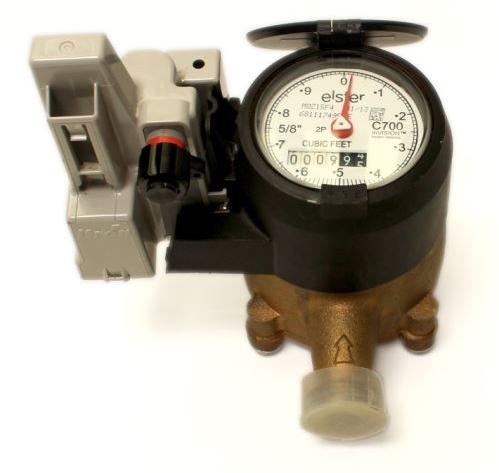Recommended Ways for Addressing Low Water Pressure in Your Home
Recommended Ways for Addressing Low Water Pressure in Your Home
Blog Article
What are your opinions on 10 Reasons for Low Water Pressure in Your House?

Low tide pressure in your house can be an irritating issue, affecting whatever from showering to cleaning dishes. If you're experiencing weak water circulation, there are several feasible causes and options to explore. In this guide, we'll review typical factors for low water pressure and practical actions to address the problem properly.
Introduction to Low Water Stress
Low tide pressure occurs when the flow of water from your taps, showers, and various other components is weaker than typical. This can make daily tasks a lot more difficult and much less effective. Comprehending the root causes of low tide pressure is essential to locating the right remedy.
Common Root Causes Of Low Tide Pressure
Faulty Pressure Regulators
Pressure regulatory authorities are responsible for keeping consistent water stress in your house. If they malfunction, it can lead to low water pressure or unequal circulation throughout your home.
Municipal Water Issues
Often, the issue exists outside your home. Local water system concerns, such as main line leaks or maintenance job, can briefly decrease water stress in your location.
Pipeline Obstructions
Over time, pipelines can end up being clogged with natural resource, debris, or debris, limiting the circulation of water. This is a typical problem in older homes with galvanized steel pipes.
Corrosion
Rust within pipes can result in leakages and lowered water pressure. Rust build-up can tighten water circulation, specifically in maturing plumbing systems.
Exactly How to Identify Low Water Pressure
Checking Pipes
Examine noticeable pipelines for signs of leaks, deterioration, or clogs. Take notice of any type of unusual audios, such as knocking or rattling pipes, which can indicate concerns within the plumbing system.
Consulting with a Plumber
If you're not able to pinpoint the cause of low tide stress, think about employing a specialist plumber to perform a thorough examination. They can recognize underlying issues and suggest suitable options.
Inspecting Faucets and Fixtures
Begin by checking the water pressure at various faucets and components throughout your home. If the concern is separated to certain areas, it might indicate local troubles.
Do It Yourself Solutions to Take Care Of Low Tide Pressure
Flushing Hot Water Heater
Sediment buildup in the hot water heater can restrict circulation and decrease efficiency. Purging the storage tank regularly helps get rid of sediment and maintain optimal efficiency.
Examining Pressure Regulator
Make certain that the pressure regulator is functioning properly. Changing or changing the regulator can aid restore proper water stress throughout your home.
Cleaning Aerators and Showerheads
Mineral deposits can build up in aerators and showerheads, minimizing water flow. Eliminate and clean up these elements on a regular basis to boost water stress.
Clearing Up Clogs in Water Lines
For minor clogs, attempt utilizing a plumbing snake or chemical drainpipe cleaner to clear obstructions in pipelines. Beware when using chemicals and adhere to safety standards.
When to Call an Expert Plumber
If do it yourself efforts fall short to deal with the concern or if you suspect substantial plumbing problems, it's finest to seek help from a licensed plumber. They have the expertise and tools to resolve complex issues securely and effectively.
Safety Nets to Preserve Water Stress
Installing a Pressure Booster
Take into consideration installing a pressure booster pump to improve water stress in areas with constantly low flow. This can be especially advantageous for multi-story homes or buildings with high-demand components.
Tracking Water Usage
Be mindful of water use routines and prevent overtaxing the plumbing system. Straightforward modifications, such as shocking showers and washing tons, can help keep adequate water pressure.
Normal Maintenance
Schedule routine upkeep for your plumbing system to prevent concerns such as corrosion, leakages, and blockages. Resolving small problems early can aid avoid more substantial repair work in the future.
Final thought
Dealing with low tide stress can be discouraging, yet recognizing the underlying causes and carrying out proper options can restore ideal flow throughout your home. Whether it's cleaning aerators, checking pipelines, or seeking advice from a plumber, taking aggressive actions can make certain a consistent supply of water for your day-to-day requirements.
How to Fix Low Water Pressure In Your Home
Municipal Water Supply Issues
Scheduled maintenance, high demand, and water main breaks are all potential causes for low water pressure within a city or county’s water lines. While there’s not much you can do to personally fix a problem with your city or county’s water supply system, you can play a big role in documenting the issue and alerting those who can.
How to fix it:
Ask your neighbors if they are experiencing any issues with low water pressure. If multiple homes are affected, it’s likely related to the city’s water line. Contact the local Water Authority to see if there is any maintenance taking place that might be affecting your supply. Also let them know of your specific issues. If other homeowners report the same issues, they’ll know that there could be a larger issue to look into. Faulty Fixtures
A damaged or clogged shower head, faucet or appliance is the first thing we’d suggest checking, especially if low water pressure appears to be isolated to a specific area of your home.
How to fix it:
First, turn off the main water supply to your home. Check the affected appliances for build-up or debris. In the case of a faucet, you can simply unscrew the aerator at the tip of the faucet. Showerheads should be fully detached from the water pipe. While the appliances are detached, you may want to check the water supply to determine if the fixtures were in fact the issue. To clean, soak the showerhead or aerator in vinegar and brush off any visible debris. Reattach the fixtures and check the water pressure again. If it is still low, there is likely a deeper issue at hand, which can be determined by a professional plumber. Pipe Obstructions
Mineral deposits, rust or other debris within water pipes can lead to blockages or corrosion over time.
How to fix it:
When you think of a clog, you probably think of a drain clog. While there are many DIY solutions to clearing a drain, clogs in a water pipe will almost always require the help of a professional plumber. A plumber will be able to locate the affected pipe and clean out any debris or mineral deposit buildup. In severe cases, the pipe may need to be replaced. Your plumber might also recommend a water softening system to remove the minerals from your home’s water supply that can contribute to pipe blockages over time.
Plumbing Leak
Undetected water line leaks can divert water away from your residential pipes, reducing the water pressure in your fixtures.
How to fix it:
Check your water meter by turning off all water sources and monitoring the meter for any movement, which could be a clear indicator of a potential leak. Check all visible pipes for signs of leaking, including water stains, active dripping or damp spots around the pipe. Inspect fixtures, including faucets and showerheads, for any drips. Test the pressure but recording the pressure with the main water valve shut off. Leave off for a few hours and test again. A significant drop in pressure is a clear sign of a leak. https://kiddcoplumbing.com/plumbing-blog/how-to-fix-low-water-pressure/

Do you enjoy reading about Dealing with Low Water Pressure in Your Home? Leave feedback directly below. We'd be happy to hear your thinking about this blog posting. In hopes to see you back again before long. Do you know somebody who is very much interested in the subject? Feel free to promote it. We cherish your readership.
Book A Free Estimate Report this page